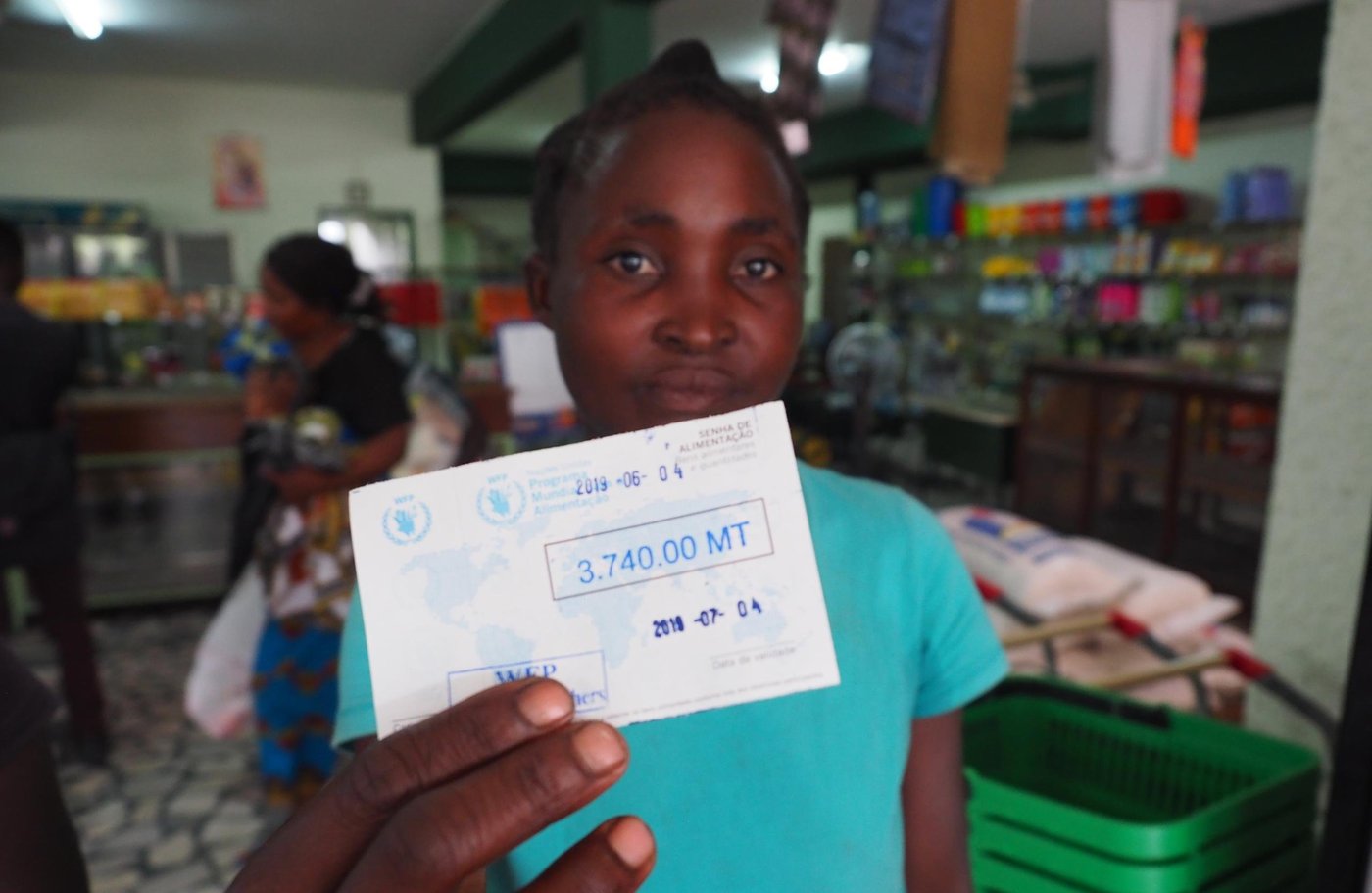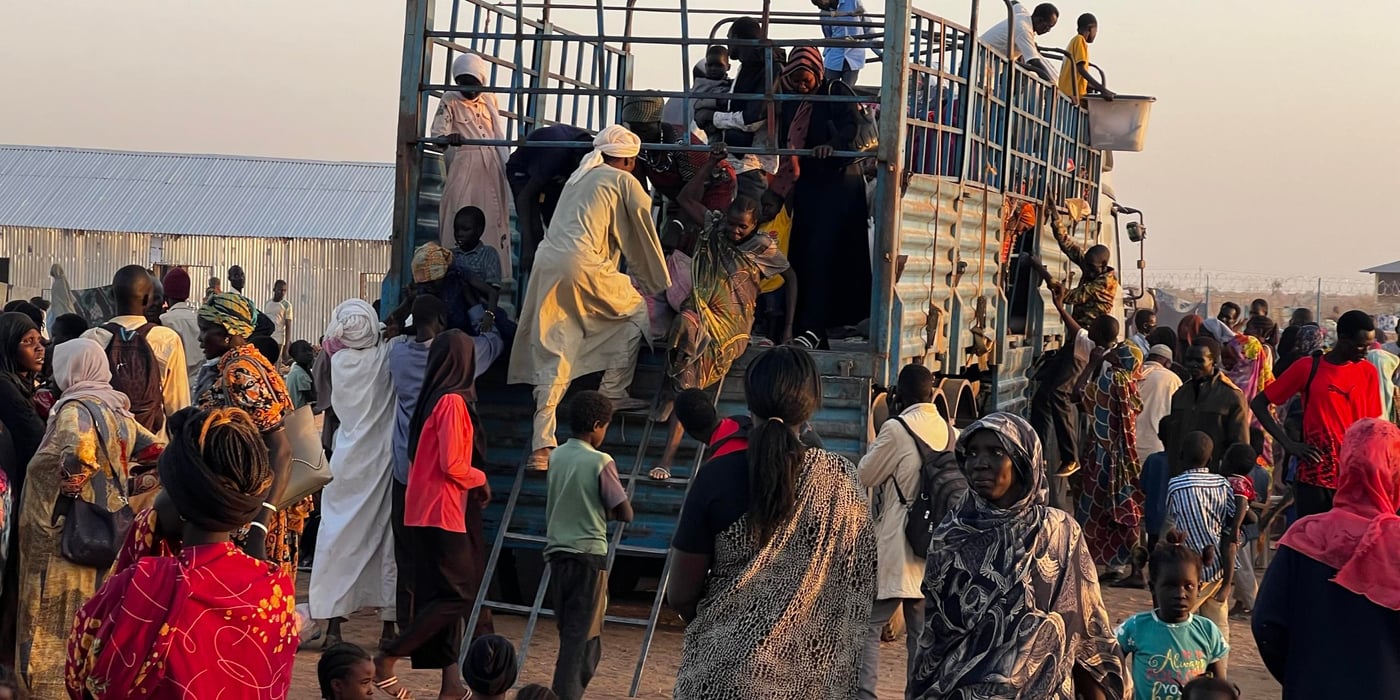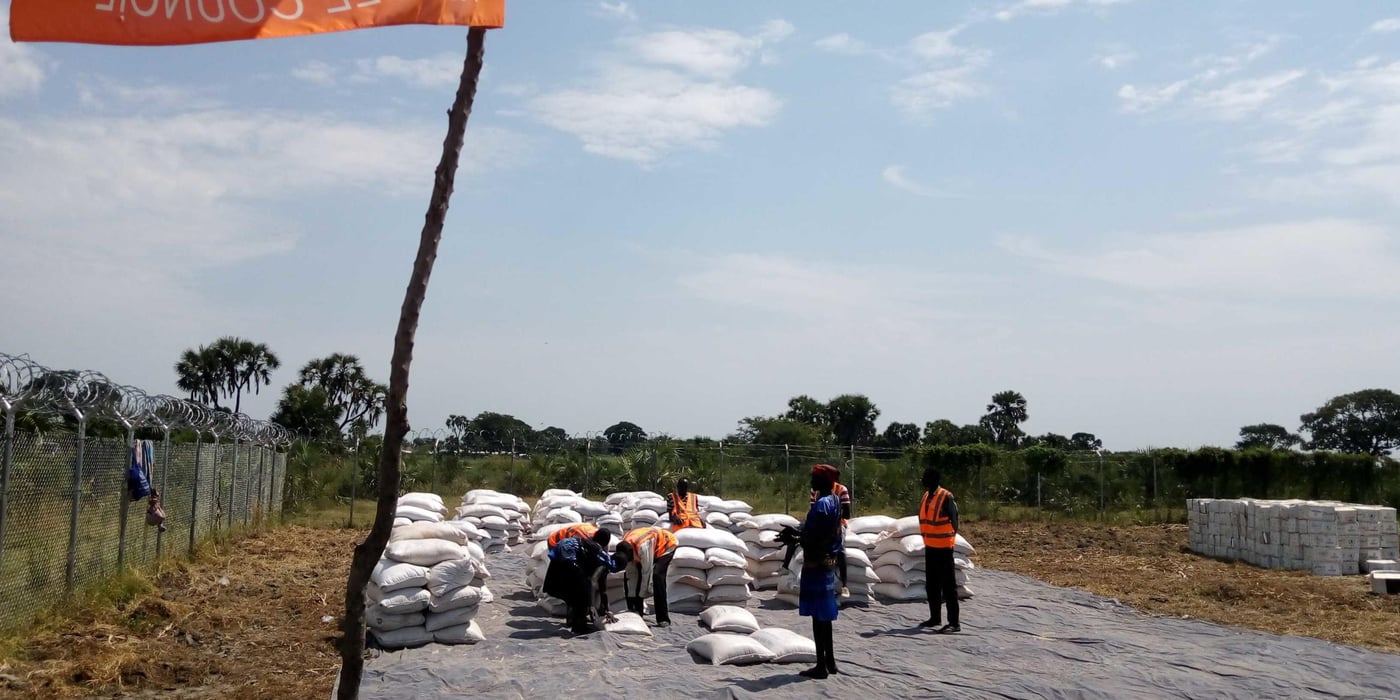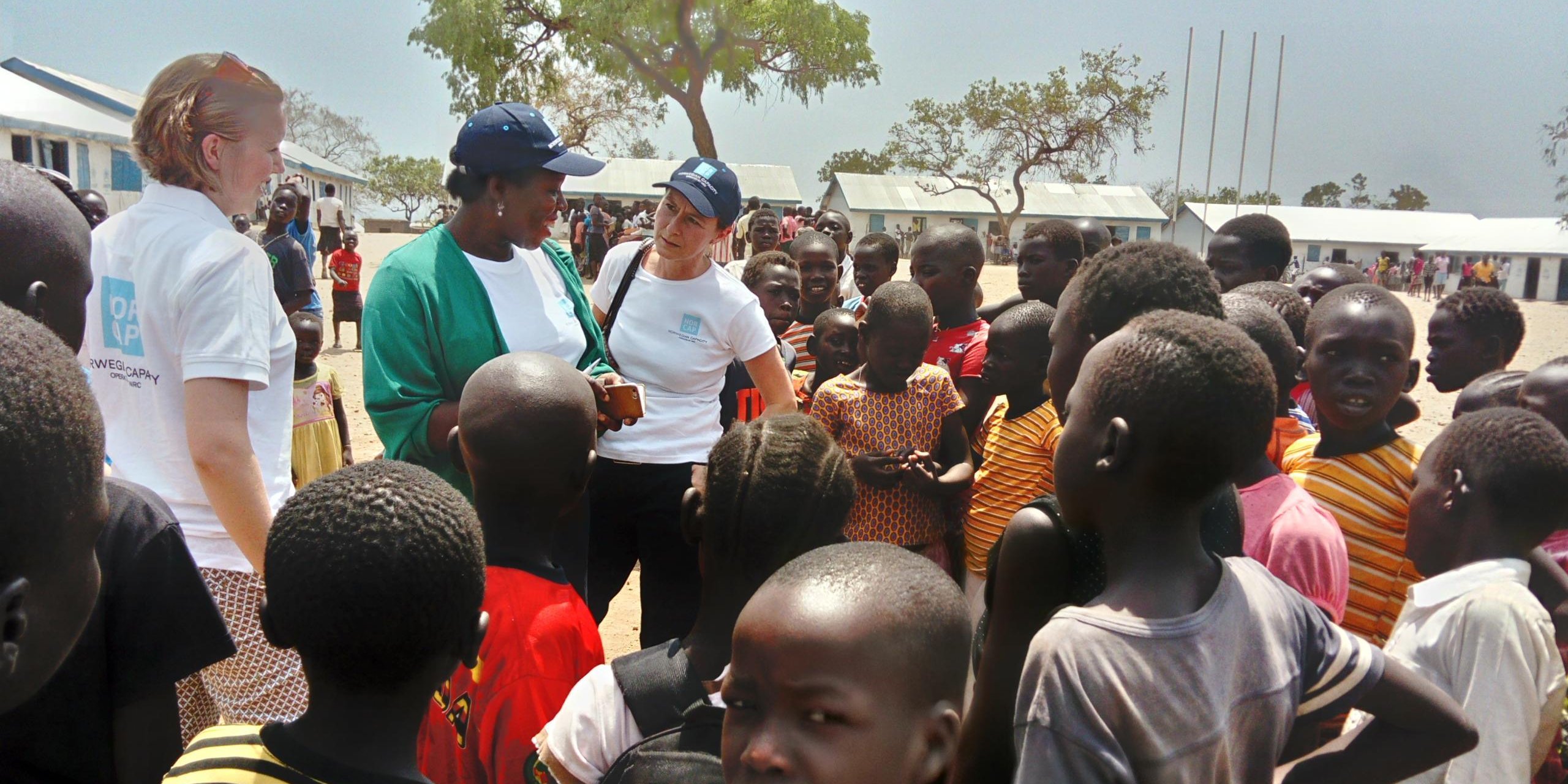
“I’m thrilled that the World Food Programme has been awarded the Nobel Peace Prize. Their work is critical to people all over the world who don’t have enough to eat”, says Helen Kape Peters, Head of the Africa Unit in NORCAP’s deployment section.
When the Norwegian Nobel Committee announced WFP as this year’s winner, they emphasised that there is imminent danger of a hunger crisis of “inconceivable proportions” and that working to end war and conflict is essential to achieving zero hunger in the world.
Helen agrees.
“I come from the Horn of Africa, an area which has seen many conflicts and wars. People have been forced to flee and thereby faced food crisis and hunger because they have not been able to grow their crops. In addition, natural disasters such as droughts and locust attacks have been exacerbated by climate change, which also influences the food production and people’s access to food”, she explains.
Experiencing hunger first-hand
Helen’s parents are from South Sudan, but she was born in Uganda after her parents had fled their country because of war and conflict. After a few years, the family returned to South Sudan, but has since been forced to go back to Uganda, while Helen moved to Norway.
“When we lived in South Sudan, there were times when we did not have enough food, especially when being displaced by the conflict. My parents have also told me that as refugees, they had no other way to get food than from organisations like the WFP. So, my family knows first-hand the close link between conflict and food insecurity”, she says.
While in her early 20s, Helen worked in a camp for internally displaced people outside of Sudan’s capital Khartoum. She was a nutrition expert, treating severely malnourished children at a mobile hospital.
“The children would come in every morning to be weighed and get food and medicine. Many of them were sick, they couldn’t talk or even sit on their own. It is painful to see a child who is five years old weighing the same as a 2-year-old. However, once they start to get food regularly, you can see them getting better. They begin to smile and play, and you can interact with them again”, Helen remembers.
Despite these rapid turnarounds, Helen is clear that there are no quick fixes when it comes to solving the bigger issue at hand.
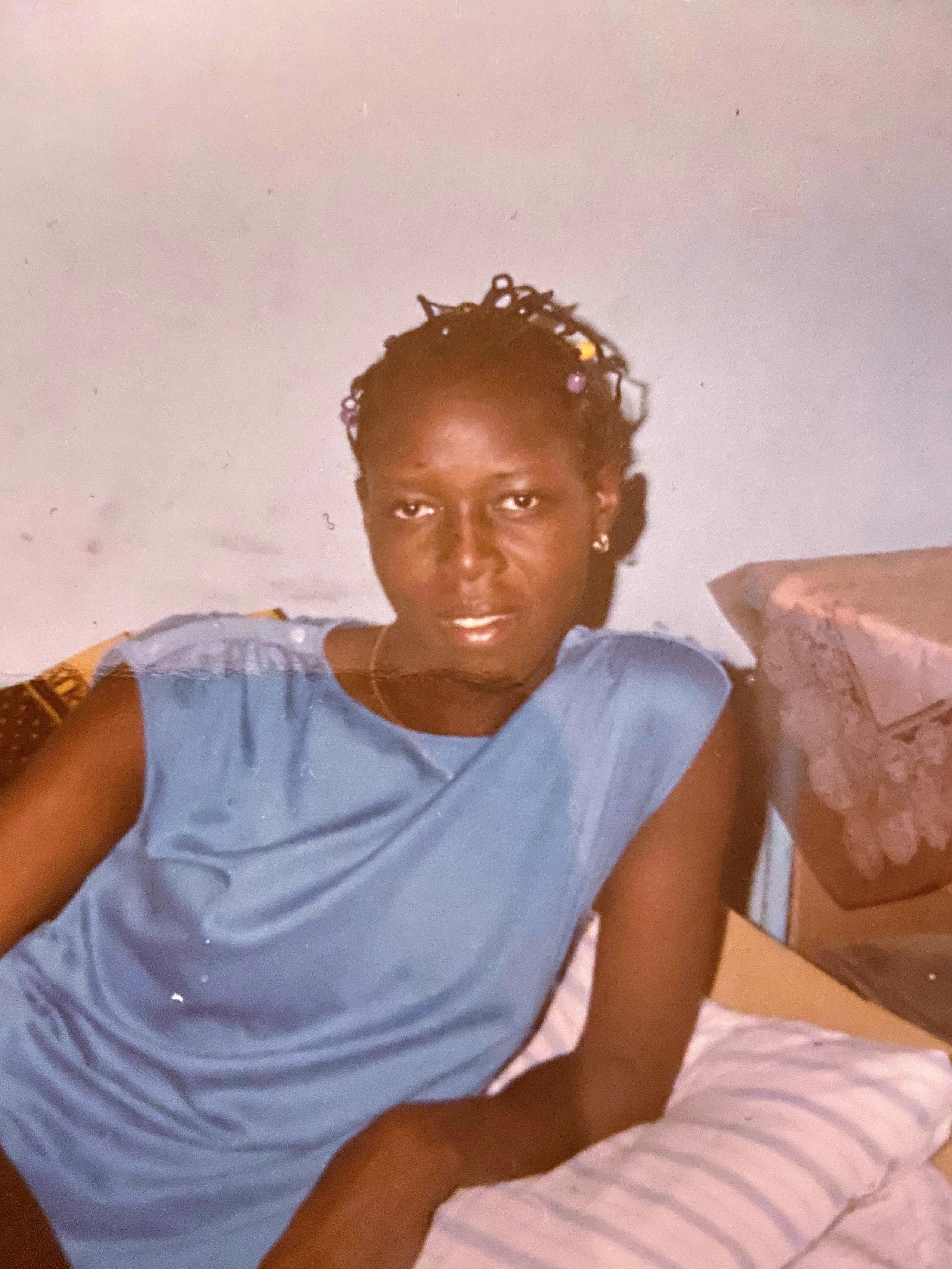
Helen came to Norway at the age of 22. This photo was taken shortly before she left her home country in Africa. (Photo: private)
Combined efforts are needed to end hunger
“Food crises and conflict affect people on so many levels. They have implications on your safety, your capacity to work and earn money, and on your children’s ability to get an education and build themselves a future. Giving people emergency food is just the beginning. We have to work for them to be able to grow their own food or earn money so that they can buy what they need”, she says.
Today, Helen oversees deployments to various African countries. The missions include nutrition and food security experts, but also people who work on conflict resolution, peace monitoring, disaster risk reduction, climate change adaptation, protection, education and cash.
Helen believes combining efforts and working on humanitarian, development and peacebuilding issues at the same time are crucial if we are to reach the Sustainable Development Goals by 2030.
“Living in Norway, where we have more food than we need, makes me think that if this is possible here, we should work for other countries to have the same possibility. Providing food assistance is an important first step, but both WFP and the rest of us know that building people’s resilience takes time and combining efforts. It is the only way to get there in time”, she says.
